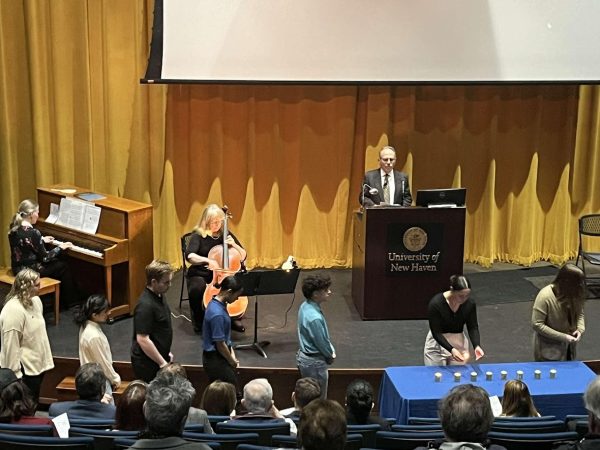Students prepare as final exam season nears
As the semester draws to a close and classes start to wind down, final exams are impending, which can be a stressful time for any student.
For first-year students, this semester is all about developing habits that work for them as they make their way into their first set of college finals.
Haley Slater, a freshman criminal justice major at the university, said she is feeling nervous about her upcoming final exams and that she feels that it is more difficult than her work in high school. “I will prepare my notes beforehand and make many notecards, and maybe study with some people in my classes for peer support.”
Slater, alongside others, is cramming for their finals late into the night.
Keila Sandoval, a first-year psychology major, said her finals have been a big stressor for her recently.
“I’ve had so much going along with worrying about final exams coming up,” Sandoval said, “I’ve just been trying to focus on making sure I’m keeping track of my work and it being done while also leaving some time to myself to avoid getting too overwhelmed.”
For upperclassmen, and especially the school’s student athletes, finding methods of effective exam preparation can be a challenge with a crowded schedule.
Mackenzie Myers, an electrical engineering senior and women’s soccer team player, said she finds that organization and time management are key. “I use a planner to keep myself organized with what I have due and when I need it to be done,” she said.
When asked to provide advice for others seeking to improve their study habits going into finals, Myers said that, “Studying one night before the exam will not be good enough. You will need to be able to absorb the material and with one day of studying you won’t be able to do that.”
She also emphasized the value of a strong lifestyle around this time in the semester, saying, “Staying up until 3am to study will not be good for your brain/body the next day. Food/snack breaks are also very good for you to make sure your body is fueled and able to concentrate on what you are doing.”
On top of students sharing their study methods this season, psychologically beneficial study methods have also been explored by university students. Studies have proven that the size and timeline of studied information will impact the retention rate of exam information. A popular concept known as information chunking suggests that learning and reviewing information in smaller, spaced out chunks will lead to stronger memory of these concepts, rather than running through vast amounts of information.

Saige Batza (she/her) is a sophomore psychology major with a concentration in community and society. She looks forward to another year of hard work for...

Mia Adduci is a senior studying communication concentrating in multi-platform journalism and media who began writing for the paper her first semester on...










